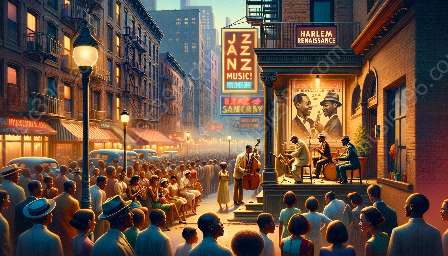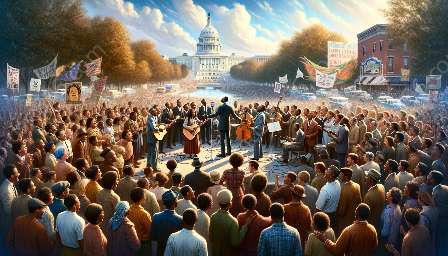Gospel music has a rich and varied history, deeply rooted in the spiritual and cultural traditions of the African American community. Its portrayal in popular media and entertainment reflects its enduring influence and significance. To understand this portrayal, we should first explore the history of gospel music and its impact on the broader history of music.
The History of Gospel Music
It is impossible to discuss the portrayal of gospel music in popular media without delving into its history. Gospel music emerged from the spirituals, hymns, and gospel songs of African American communities in the late 19th and early 20th centuries. It was deeply influenced by the religious experiences and struggles of enslaved and free African Americans, and it served as a form of expression, hope, and resilience in the face of adversity.
Rooted in the traditions of African American churches, gospel music became a powerful platform for conveying spiritual messages and addressing social and political issues. The music often revolved around themes of faith, salvation, and overcoming hardship, resonating with both religious and secular audiences.
Throughout its development, gospel music incorporated a range of musical styles, including traditional hymns, blues, jazz, and even elements of rock and roll. This eclectic mix gave rise to a diverse array of gospel subgenres, such as traditional gospel, contemporary gospel, and gospel blues, each with its own distinct musical characteristics and cultural significance.
The Impact of Gospel Music on the History of Music
The influence of gospel music extends far beyond its own genre, significantly shaping the broader history of music. Its emotive melodies, passionate vocals, and powerful lyrical content have permeated various musical genres and inspired countless artists across different eras.
One of the most notable impacts of gospel music is its role in the development of popular music genres such as soul, R&B, and rock and roll. Many legendary musicians, including Aretha Franklin, Sam Cooke, and Little Richard, started their careers in gospel music before transitioning to mainstream success in these genres. Their gospel roots profoundly influenced their musical styles, contributing to the evolution of popular music as we know it today.
Beyond its influence on specific genres, gospel music has also left a lasting mark on popular culture, influencing the performance techniques, vocal styles, and lyrical themes of diverse artists worldwide. Its dynamic rhythms and emotional depth have transcended cultural boundaries, earning gospel music a global following and recognition as a fundamental pillar of American music history.
The Portrayal of Gospel Music in Popular Media and Entertainment
The portrayal of gospel music in popular media and entertainment reflects its enduring appeal and cultural significance. From movies and television shows to commercials and live performances, gospel music has been depicted in various ways, capturing both its traditional roots and contemporary adaptations.
Movies and television have played a significant role in showcasing gospel music to broader audiences. Iconic films such as 'The Gospel' and 'The Preacher's Wife' have featured gospel music as central elements of their soundtracks, portraying the emotional and spiritual power of the genre. These portrayals have not only highlighted the musical prowess of gospel artists but have also conveyed the genre's ability to uplift and inspire listeners from diverse backgrounds.
Furthermore, reality TV competitions like 'Sunday Best' have provided platforms for aspiring gospel singers to showcase their talents and compete for recognition within the genre. Such programs have helped bring gospel music into the mainstream spotlight, offering viewers an inside look into the vibrant and competitive world of gospel performance.
Alongside traditional media, the portrayal of gospel music in popular entertainment has also expanded through digital platforms and social media. Both established and emerging gospel artists have leveraged digital channels to share their music, engage with global audiences, and foster communities of passionate supporters. The online presence of gospel music has not only amplified its reach but has also facilitated its evolution as a dynamic and relevant musical force in contemporary culture.
Conclusion
The portrayal of gospel music in popular media and entertainment serves as a testament to its enduring impact and cultural significance. From its historical roots in African American communities to its influence on the broader history of music, gospel music continues to inspire and resonate with audiences worldwide. As it continues to evolve and adapt, its portrayal in popular media will undoubtedly reflect the unwavering spirit and relevance of this timeless and soul-stirring genre.




































